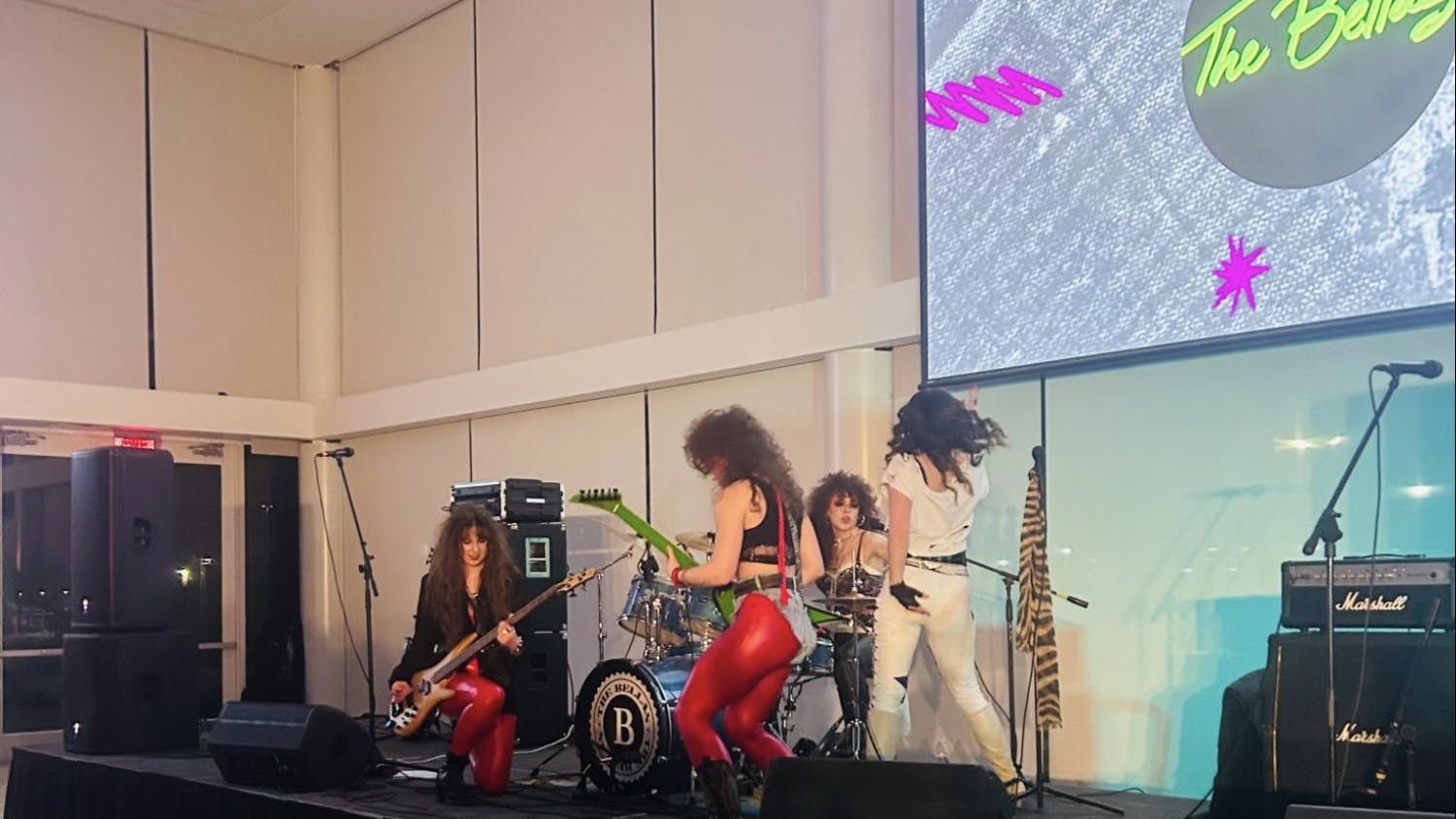America is changing - and fast. With the advent of new technology and the melting pot theory, the country is becoming new and improved for the future.
"This country is turning into a bilingual country," Hugo Balta, news director for WNJU Telemundo, a Spanish language television station, said.
"The future is really, really great," Ibra Morales, president of the Telemundo station group, said. "It's really exciting."
Hispanics are now the largest minority group in America, Morales said. "The Mexican influence is very strong," he said. "The landscape (of America) is changing."
This, according to Janice Selinger, deputy executive director of production at New Jersey Network (NJN) and adjunct professor at the College, was why she wanted to expose her students to that aspect of the media. "You have to reach that audience," she said.
Balta and Morales were part of a lecture on Oct. 19, organized by Selinger. The lecture was part of her class, Cable and Broadcasting in America, but interested students and faculty not enrolled in the class were also invited to attend.
Balta and Morales stressed the importance of the growing Hispanic population. "Hispanics are moving all over the country," Morales said. "(They) are not afraid to move wherever they can find a better lifestyle."
It is this search for a better lifestyle that has led to a rise in the Hispanic population in America. Hispanics now represent 14 percent of the population, which translates to over 41.8 million people, according to Morales. Morales estimated that there may be as many as 50 million Hispanics in the United States because many are not counted in the census.
Balta pointed out that this audience has a large impact on the stories he chooses for the news programs aired on WNJU Telemundo.
He said that choosing stories "relevant to (his) audience" was crucial in deciding what to air. "Always know your client," he said.
"(Hispanics) love both cultures, but we are very proud to speak Spanish," Morales said. He demonstrated the differences between Telemundo stations.
One striking difference is "novelas," Spanish language soap operas that only run about 150 episodes. Morales laughed while talking about them but admitted, "We love novelas."
A more important difference is between that which is broadcast on American nightly news programs and Telemundo's "Noticiero Telemundo."
"English networks completely exclude the Hispanic world," Morales said. Telemundo, in contrast, has regional bureaus and independent reporters in several different countries.
The speakers came not only to inform the students, but also to encourage them to discover what aspect of communications and media they want to work in.
Morales was enthusiastic about internships and praised them as a great starting points for students.
"You're doing the right thing by being here," Balta said. "Make the most of it."
"(Morales) is certainly inspiring," Tom Antus, senior communication studies major, said. "(He) helped me instill faith in myself as I look to enter the field in the next few months."
Antus added that the only negative aspect was that more students didn't show up to take advantage of "such a rare opportunity to have such a significant person in a field willing to speak with students."
Selinger said her goal in scheduling the lecture was to "mix it up a little bit."
"I think (the students) really liked it," she said.
"In my opinion, there is no better advice to take than from those we aspire to be," Lauren Wanko, junior communications studies major, said.






